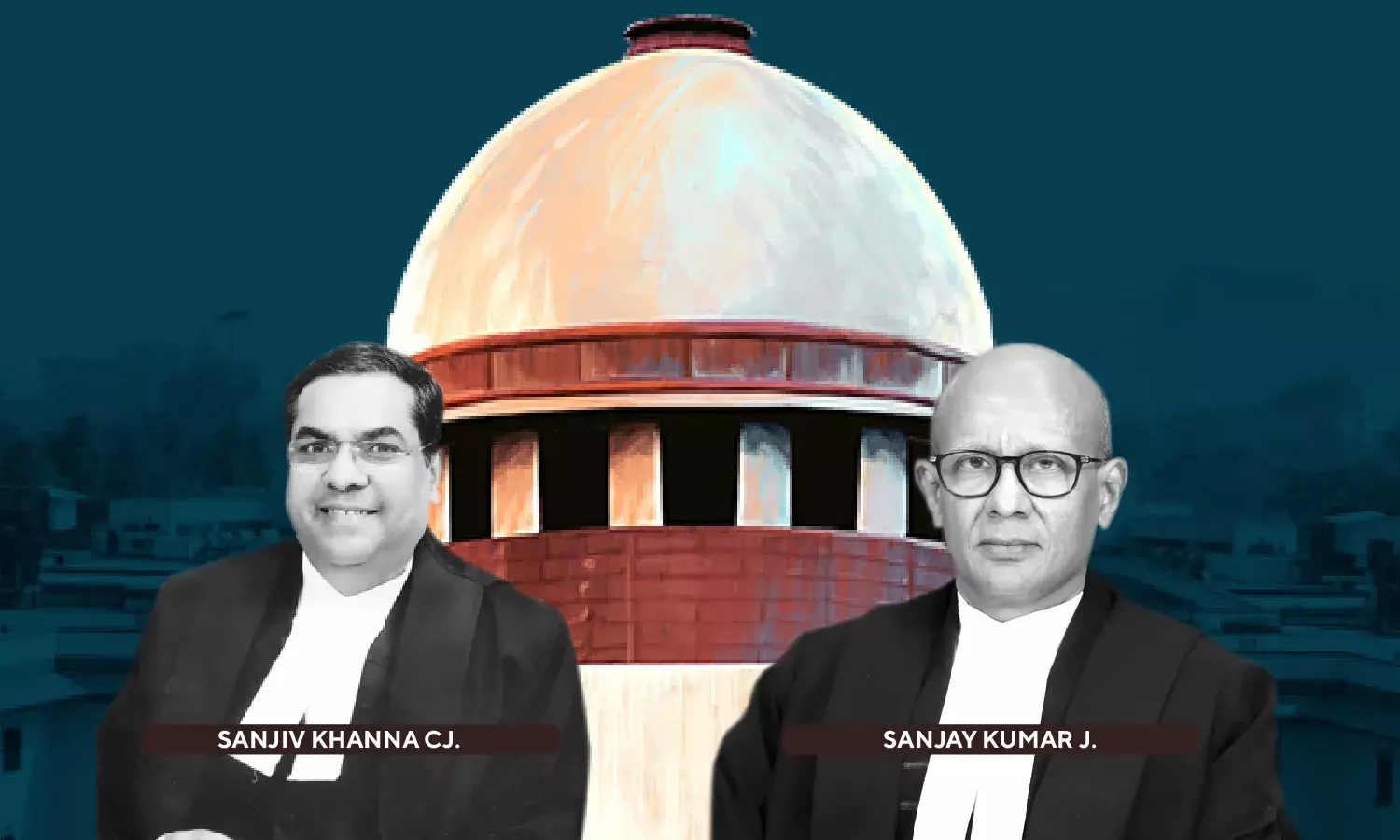Where Parties Can’t Agree Upon Common Name of Arbitrator, Court Can Appoint Arbitral Tribunal: Supreme Court
The Supreme Court ruled that in terms of the Arbitration and Conciliation Act, 1996, where parties cannot agree upon a common name as to who will act as an arbitrator, the court can appoint the arbitral tribunal.
In this case, before the Apex Court, the main issue pertained to the interpretation of the arbitration clause in the Deed of Partnership entered into between the parties in the year 2016.The appellant had challenged the impugned final judgment passed by the Madhya Pradesh High Court.
The Division Bench comprising Chief Justice Sanjiv Khanna and Justice Sanjay Kumar said, “The arbitration clauses have to be read in a pragmatic manner. The intent of the parties while executing the arbitration clause in the Partnership Deed is clear.”
Senior Advocate Ravindra Singh Chhabra represented the Appellant while Senior Advocate Puneet Jain represented the Respondents.
On a perusal of the arbitration clause, the Bench observed that it couldn’t be said that the arbitration clause was optional in the sense that the arbitration clause was nonexistent or that the matter would be referred to arbitration only if all the parties to the dispute agree to refer the dispute to arbitration.
Reliance was placed upon the judgment in Vidya Drolia v. Durga Trading Corpn. (2019) where the Apex Court had delineated the issue of interpretation and construction of an arbitration clause.
The first portion of the arbitration clause stated that, at any time during the continuance of the partnership or after the retirement of any partner, if any dispute or difference arises between the partners or their respective heirs or anyone claiming from them, the same shall be referred to arbitration. Therefore, the Bench clarified that the legal representatives or anyone claiming through a partner was entitled to invoke the arbitration clause. In the present case, the legal representative of the deceased partner, Yeshwant Boolani, invoked the arbitration clause.
The second clause stated that if any dispute arises, the arbitration shall be optional and the Arbitrator will be appointed by the partners with their mutual consent, is not to be read in isolation but in the context of the earlier portion of the arbitration clause. “This meant that the arbitration clause could be invoked by an aggrieved party who wanted to take recourse to arbitration. To this extent there is mutual agreement. Thereupon, the arbitrator can be appointed by mutual consent of all parties. This does not obliterate or write off the arbitration clause”, the Bench said.
“In terms of the Arbitration and Conciliation Act, 1996,where parties cannot agree upon a common name as to who will act as an arbitrator, the court can appoint the arbitral tribunal”, it added.
Thus, the Bench set aside the impugned judgment and allowed the petition under Section 11(6) of the A&C Act, filed by the present appellant, Tarun Dhameja, the legal representative of the deceased partner.
The Bench also held that the Coordinator/Chairman of the Madhya Pradesh Arbitration Centre or the Arbitration Centre attached to the High Court of Madhya Pradesh at Indore will appoint an Arbitrator to adjudicate the disputes inter-se the parties.
Cause Title: Tarun Dhameja v. Sunil Dhameja & Anr. (Neutral Citation: 2024 INSC 973)
Appearance:
Appellant: Senior Advocate Ravindra Singh Chhabra, Advocates Mudit Maheshwari, Aman Arora, Praneesha Nayyar, AOR Sahil Monga
Respondents: Senior Advocate Puneet Jain, Advocates Soumitra Chatterjee, Sriparna Chatterjee, AOR Anant Kumar Vatsya, AOR Christi Jain, AOR




